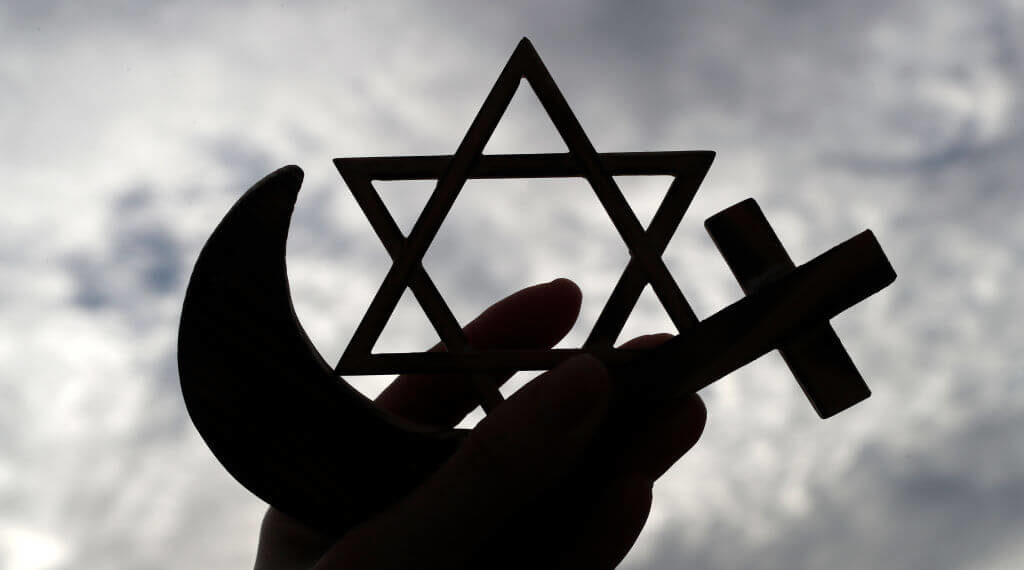Religious pluralism is always the defining factor of our country’s heritage. It teaches us to accept all religions and not discriminate against anyone based on what they believe. Everyone is guaranteed their religious freedom & live in harmony together. On the contrary, the religious radicalisation is a deep void ideology which express extremist attitude & behaviour towards individual practising different religion on the basis of own religious affiliation and is filled with pain of hatred.
The history of Kashmir can be traced back to 250 BC. when the region was conquered by Ashoka, who later sent missionaries to introduce Buddhism to the country. Buddhism was a significant part of classical Kashmiri culture. Kashmir became the centre of Sanskrit Buddhism. Thus, it can be said that the presence of Buddhism in Kashmir influenced the establishment of Buddhist and Hindu colonies in Central Asia. From fifth century to twelfth century, Kashmir was characterised by Hindu civilization. During which the Lohara dynasty ruled the Kashmir from 1003-1171 A.D, which later eventually pave way for the growth of Islamic rule in the region. The valley’s severe socio-economic and political decline led to mass conversion to Islam. Eventually, during the reign of Akbar in 1555 A.D the Kashmir witnessed direct rule under Mughal Empire. In 1819, Kashmir was annexed by Sikh ruler Ranjit Singh, the Sikhs were tolerant towards different faith. They established a Hindu tone to their rule, eventually Kashmir came under Dogra dynasty in 1846.
What was traditionally a strong confluence between Islam & Hinduism in Kashmir, where the shared language & culture worked as the greatest bond between the two communities, has now become an instrument of radicalization of over a period of time. The outburst of violence radicalization & terrorism that have taken place in the course of the past decades, have undoubtedly led to the transformation of relationship among Muslims & Pandits. Kashmir’s ethnic & religious diversity, once the hallmark of its religious plurality, has evolved into a contest between India & Pakistan. Many local residents, regardless of their religious affiliation, have fallen victim to Pakistan-sponsored religious fanaticism and cross-border terrorism. Extremism has shaped many youths from a young age to embrace violence and it always ends on a sad note with despair and sadness in the hearts of their lost loved ones. The most dreadful example of radicalisation, comes with the Pulwama attack on 14 February 2019, when a Kashmiri local named Adil Ahmed was radicalised by the Pakistan based terror group Jaish-e-Mohammed to carry out a suicide attack on a CRPF bus.
With the role of Indian Army bearing the torch to go all out into helping their countrymen first without asking anything about religion. Indian Army is conducting WHAM operations in Kashmir Valley through Sadbhavana Missions and has created a lot of trust among Kashmiris which helps to curb any terrorist attacks easily as people are welcome and ready to help in whatever the army needs. The military implements various deradicalisation measures, motivating the youth and strengthening faith in the country’s other religions. Facilitating the youths by imparting modern education, this is an innovative measure to eradicate such evil from the society. Perhaps the greatest victim of the conflict between religious radicalisation and pluralism has been none other than religion, whatever it may be, and the people themselves. It is really easy to twist & form a narrative which suits as per the plans of terrorists who only know to kill people irrespective of religion. This can lead to other forms of proxy or civil war. To turn this around, we must focus on educating children and give them a proper understanding of the religion that will bring peace and humanity everywhere. The time is not far when the whole population will have enough mutual trust and will stand against the terrorists, will not sympathize with them in any way.


